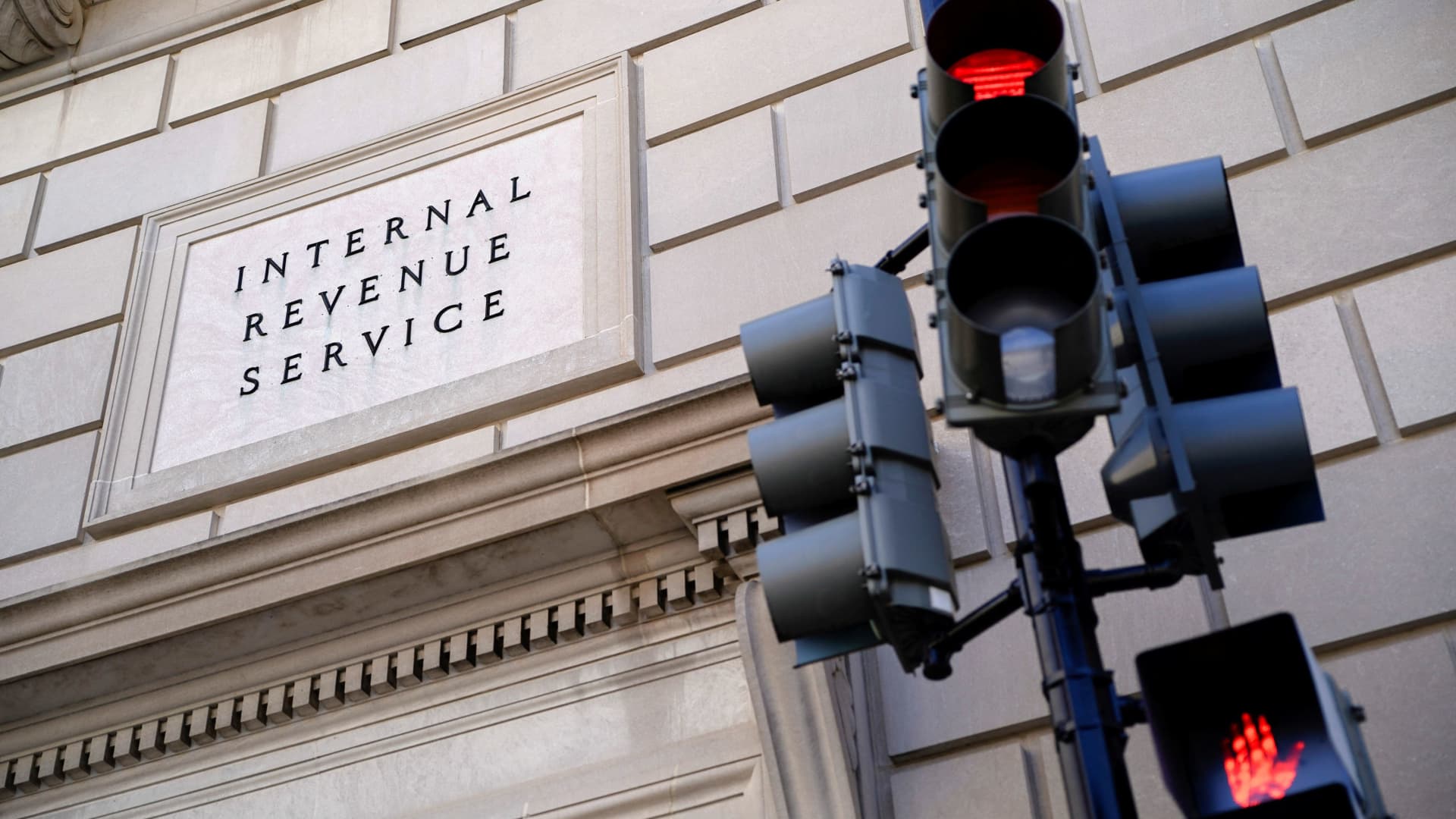A traffic light is red outside the U.S. Internal Revenue Service building in Washington, D.C., on Feb. 20, 2025.
Kent Nishimura | Reuters
The IRS has lost nearly one-third of tax auditors amid sweeping cuts from Elon Musk‘s Department of Government Efficiency, a watchdog report found.
As of March 2025, the agency’s workforce had fallen by more than 11,000 employees, or 11%, due to probationary terminations and the deferred resignation program, according to a May 2 report from the Treasury Inspector General for Tax Administration.
The percentage of separated employees was significantly higher for certain departments — including so-called revenue agents, who conduct audits for the IRS. As of March, the agency lost 3,623 revenue agents, or 31%, according to the report.
More from Personal Finance:
What the Fed’s upcoming interest rate decision means for you
Some prices are falling. ‘They’re not here to stay,’ economist says
Your Social Security card will soon be available digitally
The TIGTA report came the same day as President Donald Trump‘s fiscal 2026 discretionary budget request, which called for a nearly $2.5 billion IRS budget cut to end the “weaponization of IRS enforcement.”
U.S. Treasury Secretary Scott Bessent on Tuesday defended the reduced spending request in a House of Representatives Appropriations subcommittee hearing. He said the federal government has cut $2 billion from the agency’s information technology budget “without any operational disruptions.”
As of April 25, the IRS processed more than 140 million tax returns during the 2025 filing season, slightly more than the previous year, according to agency data.
The Treasury did not respond to CNBC’s request for comment about the TIGTA report.
IRS cuts could help ‘wealthy tax dodgers’
In a March letter to former acting IRS Commissioner Melanie Krause, more than 130 House Democrats warned that cutting compliance staff could limit the agency’s ability to collect unpaid taxes from “wealthy tax dodgers.” The lawmakers were responding to IRS staffing reductions that began in late February.
Those cuts hurt the agency’s ability to “improve collections, crack down on complex tax avoidance and evasion by high-income taxpayers and large businesses,” the lawmakers wrote.
Audits of the top 0.1% of taxpayers returned more than $6 in revenue for every dollar spent in resources, according to a 2023 working paper from researchers at the U.S. Department of the Treasury, Massachusetts Institute of Technology, the Wharton School and University of Sydney.
At the House Appropriations subcommittee hearing on Tuesday, Bessent said “collections” were among his IRS priorities. But he expects to meet revenue goals via “smarter IT” and the “AI boom” rather than via “unseasoned collections agents.”
“I would expect that collection would continue to be very robust,” he said.






